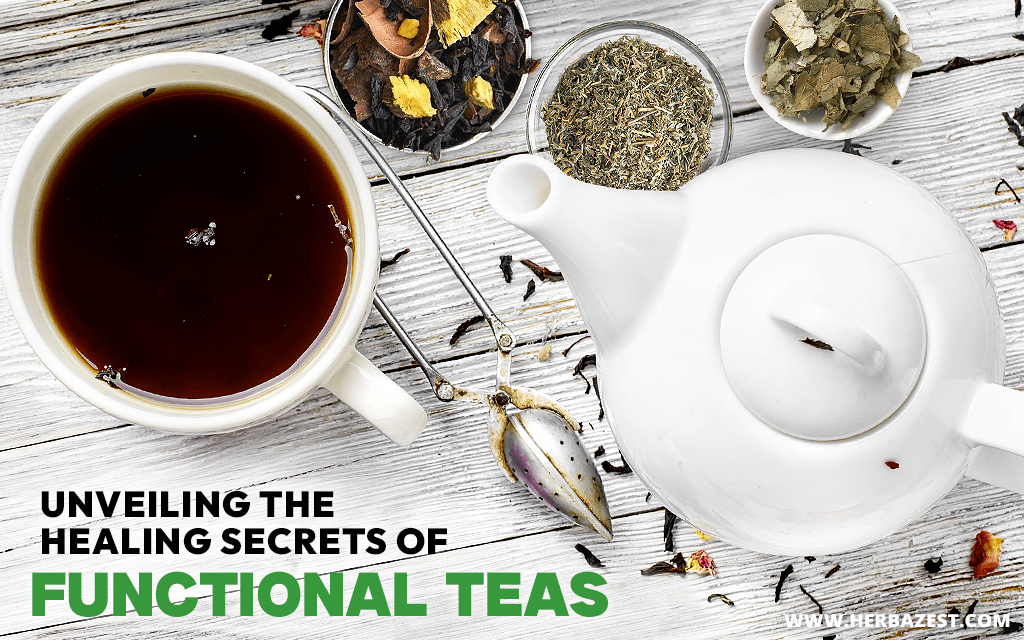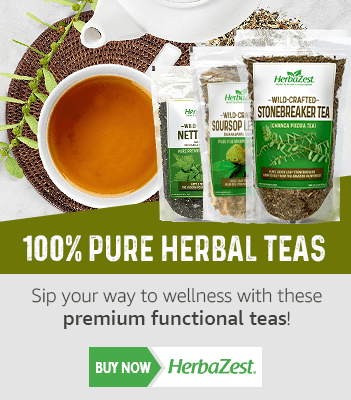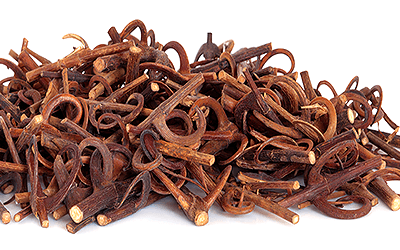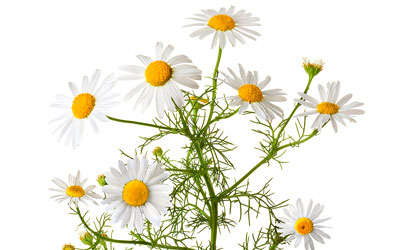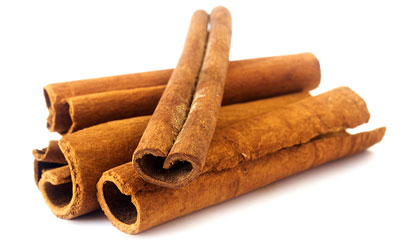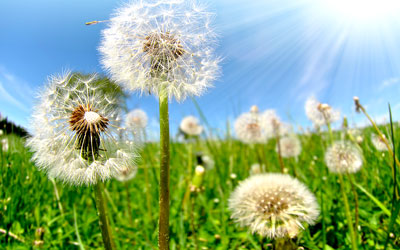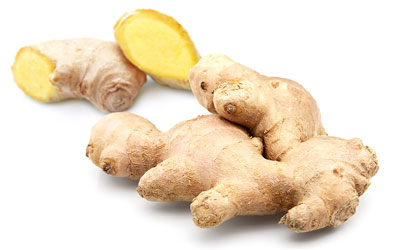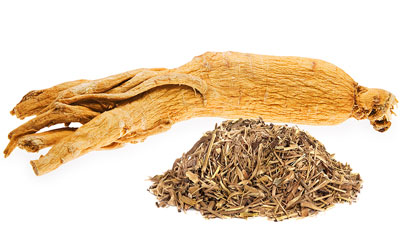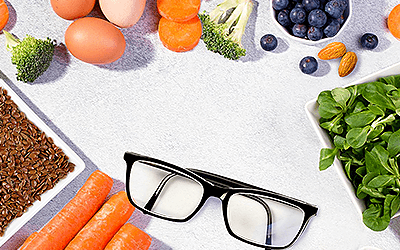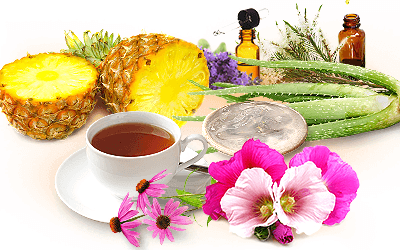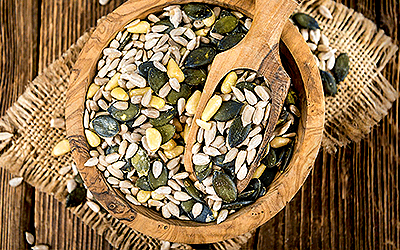Functional teas have gained popularity as people increasingly seek natural ways to enhance their health. Unlike traditional teas derived from the tea plant, which are primarily enjoyed for their flavor, functional teas are crafted with specific herbs to offer a blend of aromatic delight and tailored health benefits that go beyond basic hydration and taste. From the simplicity of single-ingredient brews to the complexity of carefully crafted blends, functional teas offer a holistic approach to well-being.
Single-Ingredient Functional Teas
Single-ingredient functional teas epitomize simplicity in its purest form, allowing the inherent qualities of a solitary plant to shine through with each sip. Among the plethora of options available, certain single-ingredient teas have risen to prominence due to their remarkable flavors and well-documented health benefits.
1. Nettle Tea
The word "tea" refers to six types from the Camellia sinensis plant—white, green, yellow, oolong, black, and pu-erh—while herbal teas are made from hundreds of other plants.1
Nettle tea, crafted from the leaves of the stinging nettle plant, offers a surprisingly smooth and earthy flavor despite its prickly reputation. Rich in vitamins and minerals and renowned for its anti-inflammatory properties, nettle tea is believed to bolster the immune system and alleviate seasonal allergies.
2. Chamomile Tea
Known for its delicate floral aroma and gentle, soothing flavor, chamomile tea is a beloved bedtime staple. Chamomile's natural calming properties make it an ideal choice for relaxation and stress relief, promoting restful sleep and tranquility. It can also help soothe digestive issues.
3. Stonebreaker Tea
Stonebreaker tea has a pleasant, mild flavor and a richness of beneficial compounds, making it an appealing option for those wanting to use functional teas to boost their well-being. Traditionally used in folk medicine to treat kidney stones and gallstones, stonebreaker also supports liver health and has antiviral properties.
4. Peppermint Tea
With its invigorating minty taste and cooling effects, peppermint tea offers a burst of rejuvenation with every sip. Beyond its refreshing flavor, peppermint is prized for its digestive benefits, soothing upset stomachs and alleviating nausea. It can help improve focus and alleviate headaches.
5. Cat's Claw Tea
Cat's claw is native to the Amazon rainforest and offers a robust, woody flavor with subtle bitterness. Highly regarded for its immunity-boosting and anti-inflammatory properties, cat's claw tea is commonly used to alleviate symptoms of arthritis, support digestive health, and enhance overall immune function.
6. Dandelion Root Tea
Made from the roots of the dandelion plant, dandelion tea offers an earthy, slightly bitter flavor that many find uniquely refreshing. This tea is often celebrated for its numerous health benefits, particularly in supporting liver health and aiding detoxification. It can also contribute to maintaining healthy, clear skin.
7. Soursop Leaf Tea
Soursop leaf tea offers a unique combination of mild sweetness and tartness, making it a delightful choice of functional tea. Derived from the leaves of the soursop tree, it is reputed to boost immune function, aid in digestion, and induce relaxation.
8. Turmeric Tea
Turmeric tea is known for its warm, slightly bitter flavor, often enhanced with black pepper to potentiate its natural properties. Thanks to turmeric's anti-inflammatory and antioxidant properties, the tea is often consumed to manage arthritis symptoms, boost immune health, and support overall wellness.
Functional Tea Blends
Functional tea blends marry the flavors and properties of multiple ingredients, resulting in complex brews that with endless pairing possibilities. These tea blends showcase the healing powders of herbs, which can be easily enjoyed on a daily basis.
1. Immunity Boost Tea Blend
Crafted from hibiscus, rosehips, and lemongrass, the immunity boost blend strengthens the immune system and helps prevent colds and flu, providing essential support during periods of increased vulnerability.
2. Anti-Stress Tea Blend
Combining ashwagandha, holy basil, and cinnamon produces a potent and aromatic blend. Thanks to their well-researched properties, it helps the body manage stress as well as improve mood and enhance overall well-being.
3. Detox Tea Blend
The detox blend combines dandelion root, milk thistle, nettle, and burdock root to create a refreshing and cleansing beverage. This blend supports liver function and enhances detoxification processes.
4. Weight Management Blend
Lightly sweet and earthy, this blend combines the healing power of white tea, ginseng, and licorice root. Sipping on this functional tea helps boost metabolism and reduce appetite, thus supporting weight loss.
5. Digestive Aid Blend
Peppermint, ginger, fennel, and licorice root come together in this powerful blend to create a flavorful and effective remedy for gastrointestinal discomfort, helping reduce bloating, alleviate indigestion, and more.
6. Relaxation Blend
Featuring chamomile, valerian root, lavender, and passion flower, this calming infusion is ideal for reducing anxiety, stress, and sleep problems. It offers a gentle way to unwind and restore balance to both body and mind.
Functional teas offer a natural and holistic approach to health and wellness, harnessing the power of herbs to support various bodily functions. Whether you prefer the simplicity of single-ingredient teas or the synergistic effects of blended teas, they provide an array of flavors and health benefits to suit every palate and preference. By incorporating functional teas into your daily routine, you can nourish your body, soothe your senses, and embrace the transformative power of nature's remedies.
Sources
- American College of Healthcare Sciences, Preparing Herbal Teas
- Current Pharmaceutical Design, Tea and Health: Studies in Humans, 2014
- Frontiers in Pharmacology, A Comparison Study on Traditional Mixtures of Herbal Teas Used in Eastern Mediterranean Area, 2021
- Harvard Health Publications, The health benefits of 3 herbal teas, 2021
- Harvard T.H. Chan - School of Public Health, Tea, 2023
- Michigan State University, Herbal Tea, 2023
- Penn State University, The Hidden Health Benefits of Tea, 2022
- University of Illinois, Teas and tea-based functional beverages, 2009
- University of Rochester Medical Center, A Guide to Common Medicinal Herbs
- University of Wisconsin, Medicinal Uses for Herbal Teas: Evidence, Dosing, and Preparation Methods, 2007
Footnotes:
- Journal of Basic and Applied Sciences. (2017). Morphology, Manufacturing, Types, Composition and Medicinal Properties of Tea (Camellia sinensis). Retrieved May 22, 2024, from https://www.academia.edu/33991571/Morphology_Manufacturing_Types_Composition_and_Medicinal_Properties_of_Tea_Camellia_sinensis

